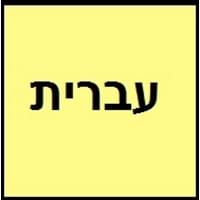Vietnamese vs Hebrew
- The vocabulary of Vietnamese language is influenced by Chinese Language.
- The only language in East Asia that uses the Latin alphabet is Vietnamese.
- The original language of Bible is Hebrew.
- The men and women use different verbs in hebrew language.
Vietnamese and Hebrew Language History
Comparison of Vietnamese vs Hebrew language history gives us differences between origin of Vietnamese and Hebrew language. History of Vietnamese language states that this language originated in c. 1440 whereas history of Hebrew language states that this language originated in 1000 BC. Family of the language also forms a part of history of that language. More on language families of these languages can be found out on Vietnamese and Hebrew Language History.
Vietnamese and Hebrew Greetings
People around the world use different languages to interact with each other. Even if we cannot communicate fluently in any language, it will always be beneficial to know about some of the common greetings or phrases from that language. This is where Vietnamese and Hebrew greetings helps you to understand basic phrases in Vietnamese and Hebrew language. Vietnamese word for "Hello" is Xin chào or Hebrew word for "Thank You" is תודה (Toda). Find more of such common Vietnamese Greetings and Hebrew Greetings. These greetings will help you to be more confident when conversing with natives that speak these languages.
Vietnamese vs Hebrew Difficulty
The Vietnamese vs Hebrew difficulty level basically depends on the number of Vietnamese Alphabets and Hebrew Alphabets. Also the number of vowels and consonants in the language plays an important role in deciding the difficulty level of that language. The important points to be considered when we compare Vietnamese and Hebrew are the origin, speaking countries, language family, different greetings, speaking population of these languages. Want to know in Vietnamese and Hebrew, which language is harder to learn? Time required to learn Vietnamese is 44 weeks while to learn Hebrew time required is 44 weeks.





